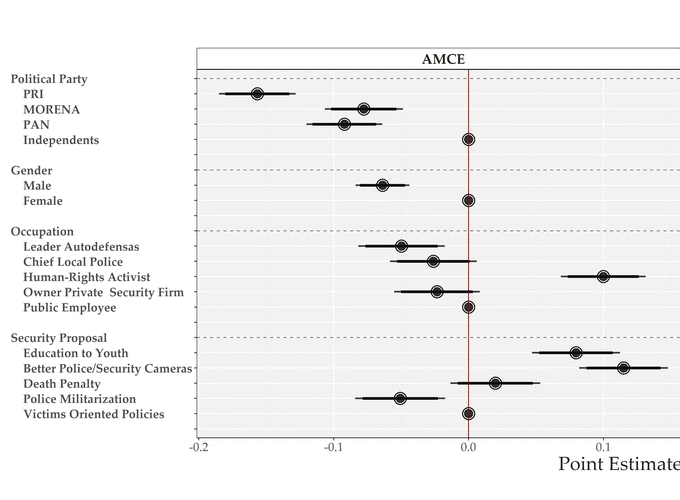Voting for Law and Order in Mexico: A Network Approach to the Effects of Victimization
Dissertation Chapter
Abstract
In this article, we present the results of an original survey experiment designed to explore the formation of policy preferences against crime. We focus on three short-cuts through which voters process and filter information and, consequently, make decisions: (1) voter experience of crime victimization, (1) non-policy advantage from candidates occupation; and (3) partisan advantages and voters’ partisan identities. To assess the role of these different channels, we model voters’ decision to support candidates campaigning over a variety of security proposals using a conjoint experimental design within a national online survey in Mexico. We use recent developments on network models to measure the effects of victimization on voters’ preferences. Our main results indicate that victimization explains higher support for more punitive policies as well as for candidates with a background in law and order enforcement agencies. Although we find null effects of partisan advantages, we show other relevant ways through which voters distinguish credible security policies.
